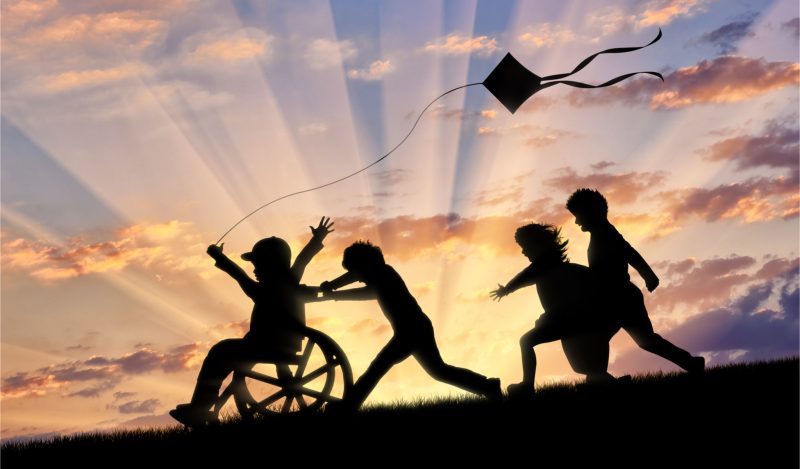The United States’ special education system is founded on six key principles addressing parents’ rights and educational access for students with disabilities. One of these is the principle of “least restrictive environment:” students with disabilities should be educated “alongside their peers who do not have disabilities to the maximum extent appropriate.”
School districts seeking to impose more restrictive environments on students with disabilities (such as a segregated classroom or placement in a special school) must demonstrate that a student cannot be successful in a less restrictive setting.
In other words, segregation and restriction are the options of last resort. Concepts like “least restrictive environment” matter because they affirm the principle that children have important educational rights. Special education is a civil rights matter, and that’s the case because the right to education is itself a civil right, which should not be abridged without concrete cause and compelling evidence of necessity.
Yet our approach to COVID-19 restrictions for children has taken precisely the opposite tack. Rather than starting from a point of respecting the fundamental right to education, and making restriction the option of last resort, we have taken an “everything but the kitchen sink” approach. Any restriction is a good restriction so long as it makes some adult, somewhere, “feel safer.”
School districts adopt masking, sanitizing, distancing and quarantine policies willy-nilly, without following available evidence, considering their developmental or academic impact, or investigating less restrictive options that have met with success elsewhere.
We should instead be asking ourselves, for every COVID-19 restriction proposed in schools, whether there is any less restrictive way to accomplish the goal of returning students to education. If we applied this standard, we would emerge with a vastly different set of school parameters than what currently exists in many blue-state schools–because it’s widely recognized across other countries and parts of the United States that schools are safe even without dystopian restrictions such as outdoor lunches in winter and all-day masks for kindergarteners.
Any proposed COVID restriction in school should clear a high bar, with concrete proof not only of its demonstrated efficacy in improving health outcomes but, equally critical, that the benefits outweigh potential harms to children. In reality, many COVID restrictions do present likely harms to well-being and development.
All-day, continuous masking of children during school, mandatory quarantines and shifts to remote schooling, cancellation of extracurriculars that offer needed social and academic development as well as college scholarships–all of these carry likely and negative impact for children and adolescents, borne out in sobering data about recent child and adolescent mental health challenges.
Traditionally, we support schooling because it’s recognized, across the political spectrum, that children have a fundamental right to education. We’ve agreed on that fundamental right even as we may have differences on the best way to maximize students’ access to it (vouchers or no vouchers? Arts integration or back to basics? Phonics or balanced literacy?). In the face of vigorous debates, we have always been able to assume all parties had a fundamental commitment to children, the most vulnerable members of society and those most critical to its long-term viability.
Moving forward, it is critical for officials, including executives, governors, and legislative bodies, to re-adopt that fundamental commitment to children’s well-being. Rather than engaging in pandemic theater, it is time for adults to use their power and authority for good, to ensure universal access to unrestricted and developmentally appropriate education.
What would this look like? For starters, we propose aggressive support of the right to in-person school by state, local and school district leaders, coupled with equally proactive stances on facilitating uninterrupted academic, psychological and socioemotional development. This means strict review of measures such as cancelling extracurriculars, mandating masks, or artificial distancing. Other countries and states have resumed education without such restrictive measures–it is time for us to ask the question, “What’s the justification for such restrictions, when multiple examples demonstrate they aren’t necessary?”
Our first concern should always be the well-being of the vulnerable among us–and few are more vulnerable than children. More than other members of society, children are at a critical phase in development, with their well-being largely dependent on the good judgement of the adults around them. As we wrap up the holiday season, full of reminders of the innocence and joy of childhood, it’s time to embrace our responsibility, as adults, to protect that innocence through reasonable pandemic policy.
Join the conversation:

Published under a Creative Commons Attribution 4.0 International License
For reprints, please set the canonical link back to the original Brownstone Institute Article and Author.










